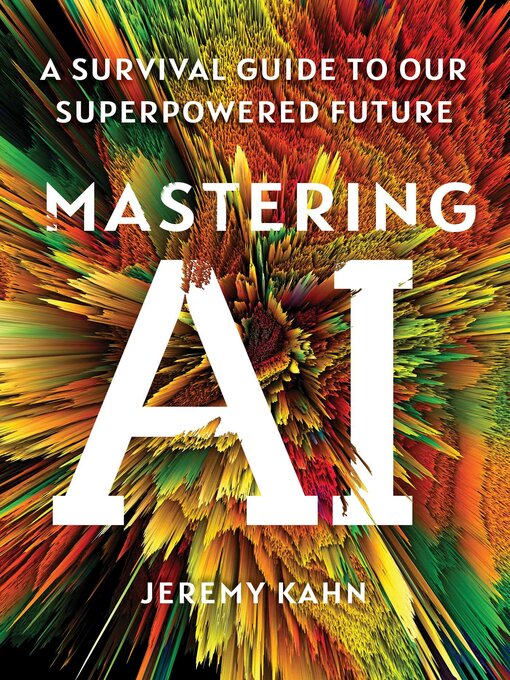- Biography & Memoir
- History
- Personal Development
- Military Interest
- Country Studies
- Climate & Environment
- China Topics
- Cyber Topics
- Future Concepts
- Army Reading Lists
- G-3/5/7 List 2021
- Diversity
- Summaries of Books (Audio & Text)
- See all
Within the next five years, Jeremy Kahn predicts, AI will disrupt almost every industry and enterprise, with vastly increased efficiency and productivity. It will restructure the workforce, making AI copilots a must for every knowledge worker. It will revamp education, meaning children around the world can have personal, portable tutors. It will revolutionize health care, making individualized, targeted pharmaceuticals more affordable. It will compel us to reimagine how we make art, compose music, and write and publish books. The potential of generative AI to extend our skills, talents, and creativity as humans is undeniably exciting and promising.
But while this new technology has a bright future, it also casts a dark and fearful shadow. AI will provoke pervasive, disruptive, potentially devastating knock-on effects. Leveraging his unrivaled access to the leaders, scientists, futurists, and others who are making AI a reality, Kahn will argue that if not carefully designed and vigilantly regulated AI will deepen income inequality, depressing wages while imposing winner-take-all markets across much of the economy. AI risks undermining democracy, as truth is overtaken by misinformation, racial bias, and harmful stereotypes. Continuing a process begun by the internet, AI will rewire our brains, likely inhibiting our ability to think critically, to remember, and even to get along with one another—unless we all take decisive action to prevent this from happening.
Much as Michael Lewis's classic The New New Thing offered a prescient, insightful, and eminently readable account of life inside the dot-com bubble, Mastering AI delivers much-needed guidance for anyone eager to understand the AI boom—and what comes next.


